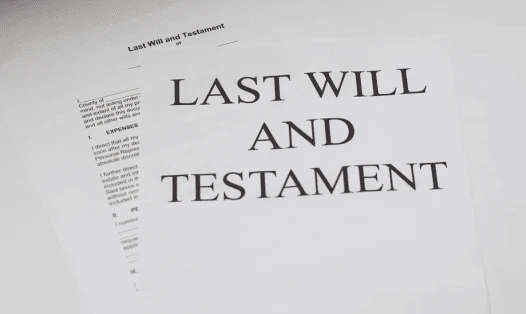Appointing a trustworthy individual to act as the estate executor is a crucial component of estate planning.
The estate\'s owner can better decide who is qualified to serve as executor if they know these duties. In addition, the individual designated as executor has the responsibility to evaluate their own competence.
Here is a rundown of what it takes to be the executor of an estate, with advice from a professional estate planner.
· Obtaining The Original Will
Executors are legally obligated to obtain the deceased person\'s will as soon as possible. In a will, the decedent lays out how they would like their inheritance divided up after their death. However, even if the executor manages to track down the will, they\'ll still have to go through the decedent\'s possessions to ensure this is the most up-to-date version and that no other versions exist.
The executor should also contact the decedent\'s attorney to verify that the will in question is the most recent one. In a case where the executor comes across copies of the will, they are obligated to contact the decedent\'s attorney to learn the original will\'s location.
· Planning a Funeral Service
There\'s a common misconception that the deceased\'s immediate family must take care of all funeral and burial details. While this may be true in many situations, the executor is entrusted with the legal ability to make these decisions. This means that the executor has the authority to make decisions about the deceased\'s funeral and final resting place.
In addition, a will\'s instructions for the deceased\'s funeral and burial are not legally binding on an executor but are typically fulfilled out of respect for the departed. Unless otherwise specified in the will, the executor should try to keep funeral and burial expenses to a minimum.
· Finding Who The Beneficiaries Are and Informing Them
An executor\'s primary duty is determining who will receive a deceased person\'s assets, i.e., the beneficiaries. An estate executor is obligated to notify the heirs under the laws of various states.
According to estate lawyers, the executor must provide further notice to the beneficiary\'s guardians if the beneficiary is a juvenile, has a physical or mental disability, or is incapable.
· Asset Recognizance and Evaluation
Although a will often details most of a decedent\'s inheritance, what happens to the few remaining assets? This is where the estate executor steps in. An executor\'s duties include tracking these assets and determining their worth. An inventory of the decedent\'s valuables, such as jewelry, automobiles, artwork, and so on, must be compiled.
Furthermore, it is the executor\'s responsibility to examine the contents of any safe deposit boxes opened in the decedent\'s name.
The estate executor must also notify any financial institutions—banks, trust firms, credit unions, etc.—where the decedent may have accounts. The estate executor is responsible for contacting the policyholder\'s insurer and filing any necessary claims.
The executor is also responsible for submitting the necessary paperwork to claim any pensions or insurance benefits that may be available from private organizations or the government.
· Settlement Of Any Debts
To settle any outstanding debts, the estate executor must first determine whether or not the decedent had any. The decedent\'s executor is responsible for reviewing financial documents to determine outstanding debts and obligations. They may also need to consult outside parties to ascertain the debt\'s precise nature and amount.
In addition to covering expenses associated with the decedent\'s death and burial, the executor is also responsible for paying off expenses such as taxes, credit card bills, mortgages, etc.
However, with the help of creditors, an experienced probate law firm, and state regulations, an executor may get some of these liabilities forgiven.
Are you looking for a reliable Queens family lawyer? Contact Ledwidge & Associates, P.C.!
They specialize in family law services in Queens and Brooklyn and provide a wide range of legal resources to help you plan for the future. To get started with estate planning in Queens, you can contact them right away!
About the Author
Andrew Gomez is an experienced paralegal who has worked for some of New York\'s top law firms. The author is an attorney in New York who has worked with many clients. He also writes blogs in his spare time to educate the public about their legal rights.






